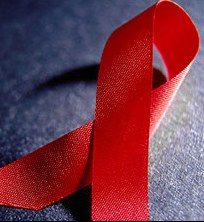Government urges people to get free HIV tests
 (CNS): The Cayman Islands will be marking HIV Testing Day on Monday, 28 June focusing on the importance of knowing ones HIV status. The Health Services Authority (HSA) is offering free testing at all clinics throughout the morning. No appointment is necessary and waiting time is around ten minutes. People wanting a test or counselling need to indicate to the registration clerks that they would like to register for free HIV screening. The results will be available in three working days. HIV is no longer a death sentence and officials say learning one’s status can help infected people to live long healthy lives.
(CNS): The Cayman Islands will be marking HIV Testing Day on Monday, 28 June focusing on the importance of knowing ones HIV status. The Health Services Authority (HSA) is offering free testing at all clinics throughout the morning. No appointment is necessary and waiting time is around ten minutes. People wanting a test or counselling need to indicate to the registration clerks that they would like to register for free HIV screening. The results will be available in three working days. HIV is no longer a death sentence and officials say learning one’s status can help infected people to live long healthy lives.
Minister for Health, Mark Scotland urged people to take advantage of the free testing: “While the Cayman Islands has a low incidence rate, we cannot discount the fact that the Caribbean as a whole has the second highest rate of HIV/AIDS sufferers in the world,” he said. “Early diagnosis and treatment can prolong and improve the lives of persons living with HIV and AIDS and therefore we all have to take it as a personal responsibility to get tested regularly.”
Health Services Authority’s HIV/AIDS Coordinator Valerie Noble Myrie echoed the importance of getting tested: “If you know your HIV status, you can take the necessary steps to increase your chances of remaining healthy.”
The free HIV testing will be available on 28 June from 9 am to 1 pm at all district health centres on Grand Cayman, Faith Hospital on Cayman Brac and the Little Cayman Public Health Clinic.
The testing procedure involves a quick and simple blood test. No appointment is necessary and the waiting time for testing is usually no more than ten minutes. Persons seeking testing or counselling need to indicate to the registration clerks that they would like to register for free HIV screening.
The results will be available in three working days. The results will be given to the patient only, who must return to clinic where the test was taken to get the results.
For more information about HIV Testing Day, contact AIDS Programme Coordinator Valerie Noble Myrie at 244-2631, or valerie.noblemyrie@hsa.ky or Health Promotion Officer Therese Prehay at 244-2632 ortherese.prehay@hsa.ky
Using condoms and having a sexual relationship with only one uninfected person, who is having sex with only you and not sharing any kind of needles are the most basic methods of remaining HIV negative.
The HIV test looks for antibodies in a person’s blood. When HIV (which is a virus) enters a person’s body, special chemicals are produced. These are called antibodies. Antibodies are the body’s response to an infection.
HIV negative means that antibodies to HIV were not detected and in almost all cases this means the person is not infected with HIV. Most people develop the antibodies within three months of infection. In rare cases it can take up to six months. It is good for the test to be repeated three months later and even at six months, just to be extra sure.
The time between infection and the development of antibodies is called the window period. In the window period people infected with HIV have no antibodies in their blood that can be detected by an HIV test. The test is only accurate if there are no other exposures between the time of possible exposure to HIV and testing
A positive HIV test means the virus antibodies have been detected and the person is infected, except in infants of HIV- positive mothers, who may retain the antibodies after birth for several months.
HIV infection is no longer a death sentence as there are drugs that can help control the virus and behaviour that can help those who are infected remain healthy to avoid developing full blown AIDS.
HIV is a viral illness which affects the immune system making it less effective in protecting the body from illnesses that it could otherwise fight off. HIV infection crosses all social barriers and places everyone not practicing safe sex, using shared needles or exposed to potential medical infection through transfusion or working in health care situations at risk.
Knowing your HIV status is a necessary precursor to positive action and being positive does not have to change a person. The 2010 theme is “HIV does not change who you are” focuses on the importance of knowing your status in order to take action. A diagnosis of HIV does not change the person but that it can impact the person’s life in either a positive or negative way. Knowledge of how to adjust to this illness, as one would have had to adjust to any other chronic disease could lead to a positive outcome.
Through research, care givers now view HIV as any other chronic illness and manage it as such. Research has allowed for different modes of treatment including strict adherence to antiretroviral drugs and proper nutrition. This intervention has seen HIV infected persons enjoying healthy, long lives. They are able to continue in their different spheres of employment thus allowing them financial independence.
In the Cayman Islands, provision is made for the treatment of all of its residents. The entire treatment process is conducted under one umbrella at Health Services Authority.
Category: Health

